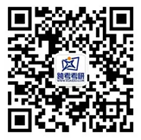2014考研英语:阅读理解模拟题及答案解析(三)
跨考教育小编为考生们精心整理了2014考研英语阅读理解模拟题及配套答案解析,希望对考生们有所帮助,取得2014考研的成功。>>>考研英语复习指导
Text 5
Legend has it that the first credit card was born in 1950 over lunch at a Manhattan restaurant when Alfred Bloomingdale and his colleague Francis McNamara dreamed up the idea of creating a third party to cover checks at restaurants. They called it Diners Club. But the scheme faced a "chicken-and-egg problem". Consumers didn't want card until stores accepted it, and merchants wouldn't accept it until consumers carried it.
To solve the problem, and to work around federal laws that prevented banks from operating across state lines, banks joined together to form "network joint ventures", such as Visa and MasterCard. Under these arrangements, some member banks recruited consumers, others recruited merchants. The banks on both ends earned fees, and they shared the costs of maintaining the networks.
Because of an antitrust dispute twenty-five years ago, Visa allows its member banks to join up with MasterCard as well. But it refuses to allow them to collaborate with any other network. The Justice Department is less appreciative. In October 1998—shortly before Paying with Plastic went to press—the government charged Visa and MasterCard with violating the Sherman Antitrust Act. (Wal-Mart and a group of big retailers have filed a related suit, charging that Visa and MasterCard have colluded to keep fees on their debit cards unfairly high. ) The trouble is that today Visa and MasterCard have pretty much the same member banks. Do two ventures with the same owners really have an incentive to compete?
According to the government's complaint, in 1987 MasterCard was prepared to introduce the first "smart card" — a card with an integrated circuit that could store personal data. But MasterCard's board refused to proceed without Visa's go-ahead. Today both brands are still developing a smart card, sharing information all the while. The situation doesn't exactly encourage competition. As Visa International's president and chief executive put it in an unguarded moment in 1992, "If you have got one foot firmly placed on both sides of the street, who cares?"
Some people insist that the Visa-MasterCard partnership does not harm competition or innovation. They point to Visa and MasterCard's rival advertising campaigns and to Citibank's recent decision to switch its primary allegiance from Visa to MasterCard because only MasterCard would allow it to relegate the network insignia to the back of its plastic cards. The reason no one has introduced smart cards, says Evans, is because the chip technology is too expensive. "It is a silly argument," he says. "The Justice Department is trying to fix something that isn't broken. This industry is extraordinarily successful. "
Indeed, however the case turns out, the most popular complaint against the consumer-credit business is likely to remain what it was a century ago: The industry succeeds all too well at putting expensive credit in the hands of weak-willed shoppers. (466 words)
21. The phrase "chicken-and-egg problem" in paragraph 1 most probably means ______.
A.consumers didn't want card until stores accepted it
B.merchants wouldn't accept it until consumers carried it
C.both consumers and merchants are very important
D.it is hard to say which side should take the initial step
22. According to the text, which of the following may be considered as Visa’s violating Antitrust Act?
A.Allowing its member banks to join up with MasterCard.
B.Keeping fees on their debit cards unfairly high.
C.Developing a smart card, sharing information all the while.
D.Sharing the costs of maintaining the networks.
23. Which of the following is NOT true of "smart card"?
A.It was officially issued 1987.
B.It contains an integrated circuit.
C.It could store personal data.
D.It is being developed by both Visa and MasterCard.
24. Why are people reluctant to accept smart cards according to Evans?
A.Because it is too popular.
B.Because it is too inconvenient.
C.Because the chip itself is too expensive.
D.Because it's cost to produce the chip is too expensive.
25. The best title for the text may be _______.
A.Legend of the First Credit Card
B. A "Chicken-and-egg Problem"
C. Credit Card and Its Problems
D.Miraculous Credit Card
Text 5
21. D, "chicken-and-egg problem":先有鸡还是先有蛋的问题。结合上下文我们可知,此处是谁先迈出第一步之意。
22. B,其借贷收费一直高得不合理。其余几个选项都与违犯反托拉斯法无关。
23. A,不是1987年正式发行,而是准备发行。见第四段第一句:in 1987 MasterCard was prepared to introduce the first "smart card"
24. D, 因为其芯片的技术成本很高。见第5段倒数第4句:because the chip technology is too expensive;( C) 不正确,因为芯片本身(chip itself)并不昂贵。
25. C 信用卡及其问题。根据第一段Consumers didn't want card until stores accepted it, and merchants wouldn't accept it until consumers carried it,第二段To solve the problem,以及最后一段的主题句Indeed, however the case turns out, the most popular complaint against the consumer-credit business is likely to remain what it was a century ago,便可知道答案为C。
更多内容请进入:考研英语复习频道
热门频道:资料下载频道
2022考研初复试已经接近尾声,考研学子全面进入2023届备考,跨考为23考研的考生准备了10大课包全程准备、全年复习备考计划、目标院校专业辅导、全真复试模拟练习和全程针对性指导;2023考研的小伙伴针也已经开始择校和复习了,跨考考研畅学5.0版本全新升级,无论你在校在家都可以更自如的完成你的考研复习,暑假集训营带来了院校专业初步选择,明确方向;考研备考全年规划,核心知识点入门;个性化制定备考方案,助你赢在起跑线,早出发一点离成功就更近一点!
| 考研院校专业选择和考研复习计划 | |||
| 2023备考学习 | 2023线上线下随时学习 | 34所自划线院校考研复试分数线汇总 | |
| 2022考研复试最全信息整理 | 全国各招生院校考研复试分数线汇总 | ||
| 2023全日制封闭训练 | 全国各招生院校考研调剂信息汇总 | ||
| 2023考研先知 | 考研考试科目有哪些? | 如何正确看待考研分数线? | |
| 不同院校相同专业如何选择更适合自己的 | 从就业说考研如何择专业? | ||
| 手把手教你如何选专业? | 高校研究生教育各学科门类排行榜 | ||
相关推荐
跨考考研课程
| 班型 | 定向班型 | 开班时间 | 高定班 | 标准班 | 课程介绍 | 咨询 |
| 秋季集训 | 冲刺班 | 9.10-12.20 | 168000 | 24800起 | 小班面授+专业课1对1+专业课定向辅导+协议加强课程(高定班)+专属规划答疑(高定班)+精细化答疑+复试资源(高定班)+复试课包(高定班)+复试指导(高定班)+复试班主任1v1服务(高定班)+复试面授密训(高定班)+复试1v1(高定班) | |
| 2023集训畅学 | 非定向(政英班/数政英班) | 每月20日 | 22800起(协议班) | 13800起 | 先行阶在线课程+基础阶在线课程+强化阶在线课程+真题阶在线课程+冲刺阶在线课程+专业课针对性一对一课程+班主任全程督学服务+全程规划体系+全程测试体系+全程精细化答疑+择校择专业能力定位体系+全年关键环节指导体系+初试加强课+初试专属服务+复试全科标准班服务 |



